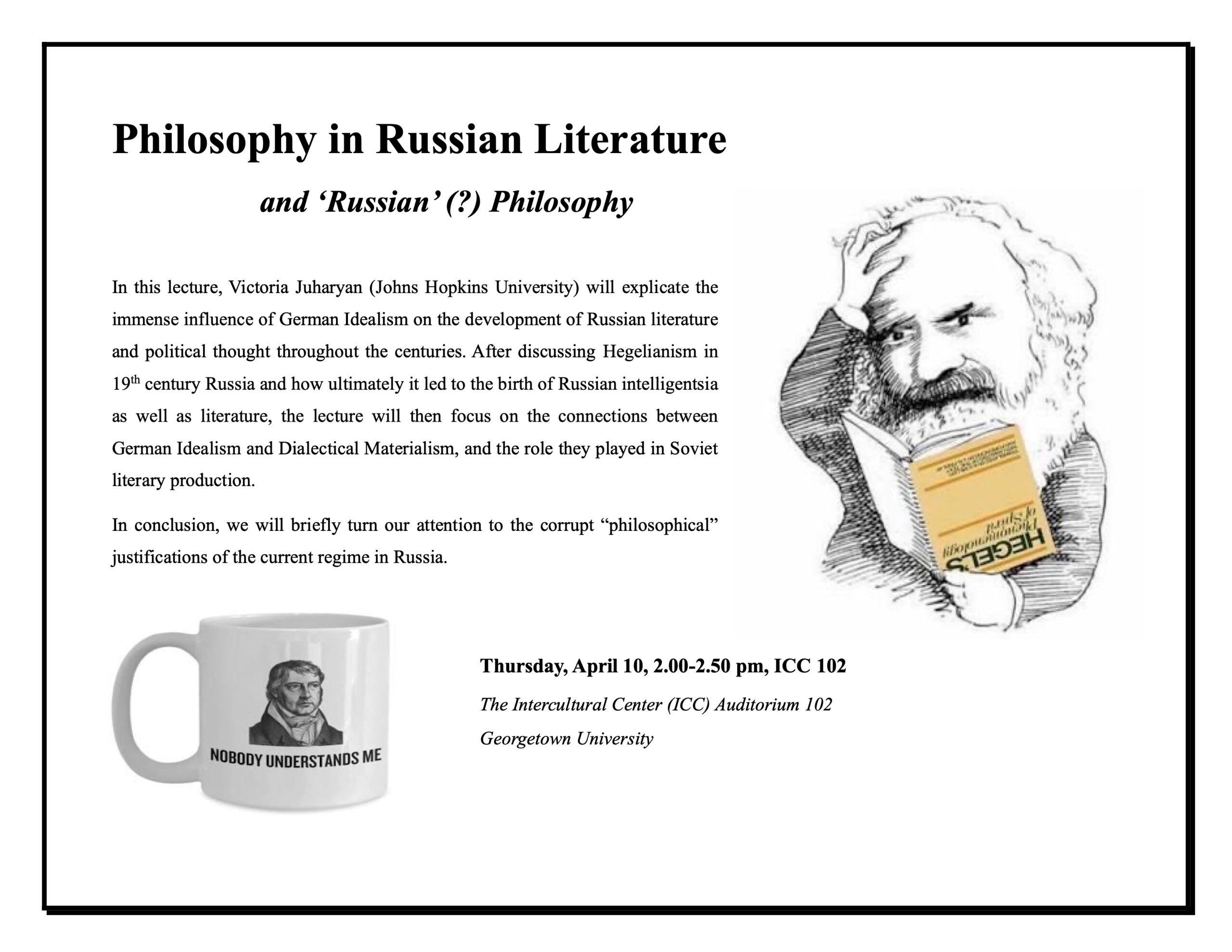Philosophy in Russian Literature and ‘Russian’ (?) Philosophy
By Victoria Juharyan, Johns Hopkins University
Thursday, April 10, 2.00-2.50 pm, ICC 102
The Intercultural Center (ICC) Auditorium 102
Georgetown University
In this lecture, Victoria Juharyan will explicate the immense influence of German Idealism on the development of Russian literature and political thought throughout the centuries. Alfred North Whitehead has famously remarked that Western Philosophy is nothing but a series of footnotes to Plato. What Plato was to Western Philosophy, Hegel was to Russian Thought. Dmitriy Chizhevsky calls Hegel’s influence on Russian thought and culture the culmination of German influence in Russia. 1840s in Russia are often referred to as “the Hegelian 40s” – a period of obsession with Hegelian philosophy. “When I started life,” writes Leo Tolstoy, “Hegelianism was the basis of everything: it was in the air, found expression in magazine and newspaper articles, in novels and essays, in art, in histories, in sermons, and in conversation. A man unacquainted with Hegel had no right to speak: he who wished to know the truth studied Hegel. Everything rested on him.” The famous literary critic Vissarion Belinsky had made very similar remarks on the importance of Hegel’s philosophy at the time. After discussing Hegelianism in 19th century Russia and how ultimately it led to the birth of Russian intelligentsia as well as literature, the lecture will then focus on the connections between German Idealism and Dialectical Materialism, and the role they played in Soviet literary production. In conclusion, we will briefly turn our attention to the corrupt “philosophical” justifications of the current regime in Russia.
